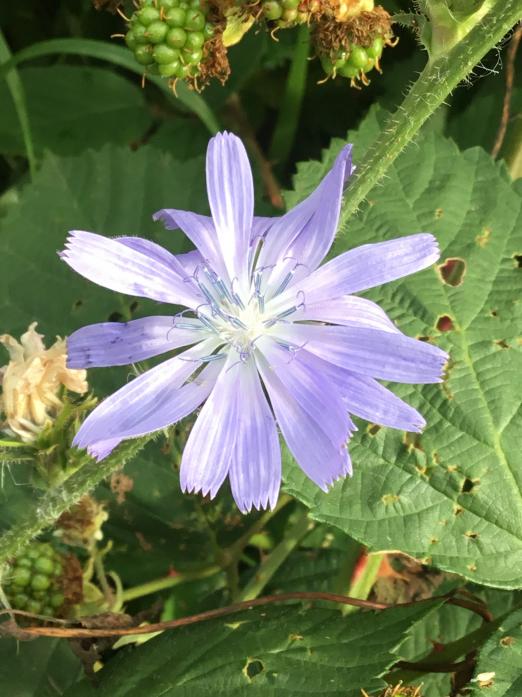
Chicory (Chicorium intybus)
IN the summer of 1966, while England was struggling towards the World Cup final, your author and two other recently qualified botany students drove an old Land Rover to Persia on a plant collecting trip.
Driving along the motorways of Austria and the autoput of Yugoslavia, we noticed all along the roadsides many straggly plants with startlingly blue flowers.
These proved to be chicory.
Chicory plants are more than three feet tall, on a stiff, erect and grooved stem. The upper leaves are hairy and toothed, of a lanceolate shape, and they clasp the stem. There is also a long stout tap root.
The plants are common on roadsides and rough grassland, particularly on chalky ground. They are more common in southern and central England, and less common in the north.
Being less natural to Scotland, they exist mostly only where deliberately introduced.
The curious name intybus refers to a grass known to the ancient Greeks which resembles chicory.
Chicory flowers are a bright sky blue and are solitary. They measure about two inches across and are composed of a number of florets which are toothed at the tips. Rare varieties have been found with white or even pink flowers.
Chicory has been well known since 300 BC and is a useful culinary addition, though it is not to everyone’s taste because of the bitterness.
In some countries the fleshy root is boiled and eaten as a vegetable. Chicory is also used dried, ground and roasted as an additive to coffee.
Those old enough to remember the privations of wartime, when chicory was used in place of coffee, may still wince at the memory.
Where chicory shines is in the salad department. The buds, forced in dark places, give us the familiar luscious chicons, and this technique of forcing was well known even in the middle ages.
The cultivated variety, endive, (known in America as chicory) has smooth leaves, unlike our own chicory, and is a useful salad ingredient as its bitterness can be ameliorated by adding other salad leaves.
Your intrepid botanists finally reached Teheran, where a kind local hauled them inside to eat wonderful Persian food and listen to the most satisfying end of the cup final.
Dr Richard Warren is a botanist from Barnard Castle





